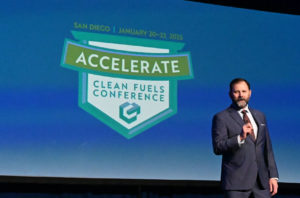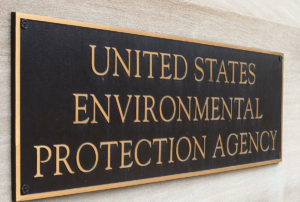 The U.S. Senate Wednesday confirmed the nomination of Lee Zeldin to become administrator of the Environmental Protection Agency and biofuels groups are happy with the decision.
The U.S. Senate Wednesday confirmed the nomination of Lee Zeldin to become administrator of the Environmental Protection Agency and biofuels groups are happy with the decision.
Renewable Fuels Association President and CEO Geoff Cooper said they are looking forward to working with Administrator Zeldin. “As noted during his Senate confirmation hearing, Mr. Zeldin understands that ethanol and other renewable fuels will play an important role in accomplishing the President’s energy and environmental objectives. We are confident he will support timely and transparent implementation of the Renewable Fuel Standard, take steps to facilitate expansion of lower-cost fuel blends like E15, and revisit extreme regulations that force automakers to produce costly electric vehicles that are heavily dependent on foreign raw materials.”
Cooper talked about working with Zeldin and other members of the new administration in the latest Ethanol Report podcast.
American Coalition for Ethanol (ACE) CEO Brian Jennings said, “We congratulate Lee Zeldin on his confirmation to lead EPA and look forward to working with him to keep the Renewable Fuel Standard on track, including safeguarding against the misuse of Small Refinery Exemptions and promptly moving forward on biofuel blending obligations for 2026 and beyond. Other priorities we will be raising with Administrator Zeldin include providing consumers with choices to use higher blends of ethanol in flexible fuel vehicles, supporting efforts to ensure nationwide year-round availability of E15, and applying the most recent GREET model to determine the lifecycle greenhouse gas emissions for corn ethanol.”











